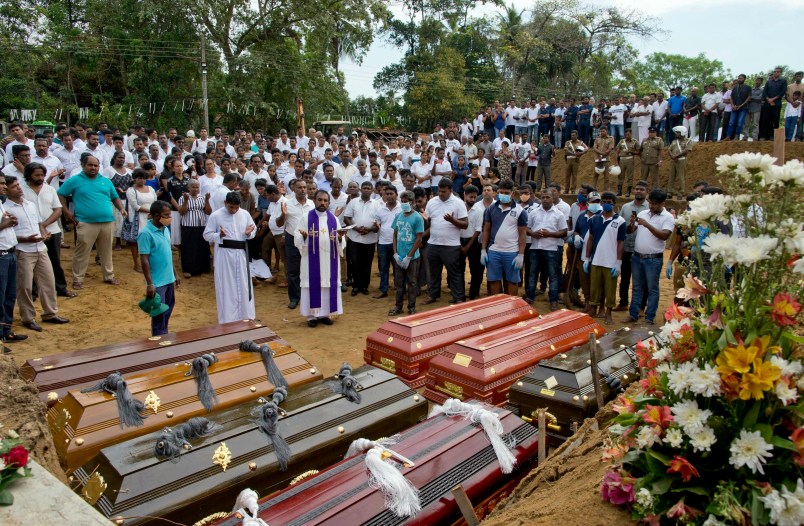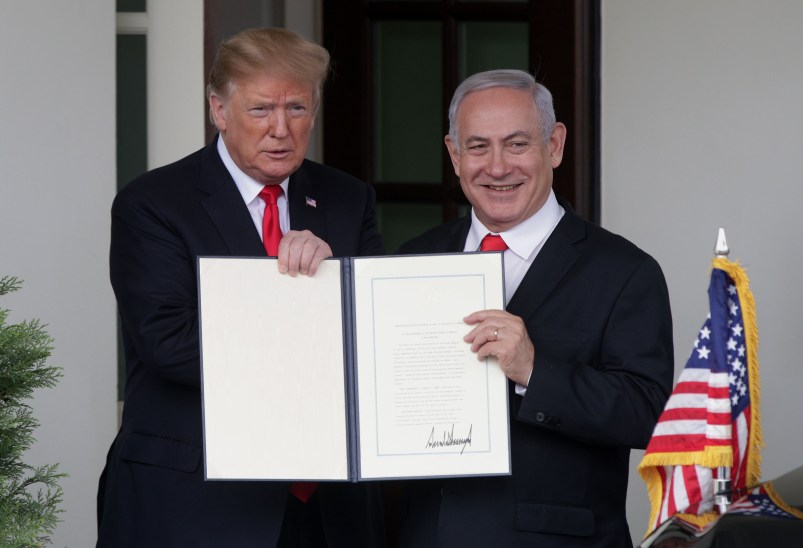MOSCOW (AP) — A Russian reconnaissance aircraft was shot down by a Syrian missile over the Mediterranean Sea, killing all 15 people on board, the Russian Defense Ministry said Tuesday. It blamed Israel for the crash, saying the plane was caught in the crossfire as four Israeli fighters attacked targets in northwestern Syria.

The Russian military said the Il-20 electronic intelligence plane was hit 35 kilometers (22 miles) offshore late Monday as it was returning to its home base nearby.
“The Israeli pilots were using the Russian aircraft as a shield and pushed it into the line of fire of the Syrian defense,” said Russian Defense Ministry spokesman Maj. Gen. Igor Konashenkov.
Russian Defense Minister Sergei Shoigu called his Israeli counterpart, Avigdor Lieberman, later Tuesday to say that Israel is “fully to blame” for the deaths, the ministry said.
The military said Israel did not warn it of its operation over Latakia province until one minute before the strike, which did not give the Russian plane enough time to escape.
Russian President Vladimir Putin, however, struck a reconciliatory note Tuesday, blaming the shooting down on “a chain of tragic circumstances.”
Asked about the Defense Ministry’s threat to respond to Israel’s actions, Putin said the Russian response will focus on boosting security for its troops in Syria. He did not elaborate but said “these will be the steps that everyone will notice.”
The Israeli military said in a statement Tuesday that its jets were already within Israeli airspace when the downing occurred. Israel offered condolences for the deaths of the Russian troops but said it holds the Syrian government “fully responsible.” It also blamed Iran and Hezbollah for what it described as an “unfortunate incident.”
The Russian Defense Ministry said a recovery operation located the plane’s wreckage at sea and has retrieved some bodies and some fragments from the plane. A specialized ship carrying submersibles was heading to the area to join the operation.
For several years, Israel and Russia have maintained a special hotline to prevent their air forces from clashing in the skies over Syria. Israeli military officials have previously praised its effectiveness.
Russia, a key backer of Syrian President Bashar Assad, has an air base at Hemeimeem and a naval facility in Tartus. The plane was downed as it was heading to land at Hemeimeem.
Russia has previously lost at least seven warplanes and seven combat helicopters in Syria and also seen dozens of troops killed in ground combat.
In another crash, a passenger airliner carrying members of the Red Army Choir to a New Year’s concert at a Russian military base in Syria crashed into the Black Sea minutes after takeoff from Sochi in southern Russia, killing all 92 people aboard. The investigation into that 2016 crash is still ongoing, but officials have indicated it a pilot error was the likely cause.
Russia’s dramatic entry into the Syrian civil war in September 2015 in support of the Syrian government, after a year of airstrikes by the U.S. and its coalition partners against the Islamic State group, increased the possibility of dangerous confrontations in the skies over Syria.
The downing of a Russian warplane by a Turkish jet in November 2015 heightened tensions between Moscow and Ankara, but they later managed to mend the rift and negotiated a series of de-escalation agreements for Syria together with Iran.
Turkish troops are now on the ground in northern Syria and are patrolling the skies over the region as Ankara seeks to ramp up its influence there and curb the expansion of Syrian Kurdish-controlled territory.
Israel has refrained from taking sides in the Syrian civil war. But it has acknowledged carrying out scores of airstrikes against archenemy Iran and its Shiite proxy Hezbollah.
Israel has acknowledged attacking Iranian targets some 200 times. Israel has warned that it will not allow Iran to establish a permanent military presence in postwar Syria.
Throughout the fighting, Israeli Prime Minister Benjamin Netanyahu has maintained continuous contact with Russia. Netanyahu frequently travels to Russia for talks with Putin to discuss the war in Syria.
The Israeli military said the Russian plane fell victim to the “extensive and inaccurate” firing of Syrian surface-to-air missile systems and that the Israeli jets — which were carrying out a raid against a Syrian government facility in another place — had already left Syrian airspace by that point.
The Israeli military said that hotline with Russia was in operation and that it would share with Russia all the data at its disposal.
Sima Shine, a former senior Mossad official and ex-deputy director-general at Israel’s Strategic Affairs Ministry, told Israel’s Army Radio station that the downing of the plane is problematic for many reasons.
“I think it will impose very serious restriction on Israel’s freedom of activity,” she said.
The plane crashed only hours after the leaders of Russia and Turkey reached an agreement to avert an all-out offensive by Syrian government forces to retake Syria’s last remaining rebel stronghold in Idlib. Putin’s spokesman, Dmitry Peskov, on Tuesday called the deal “a landmark and crucial agreement for Syria’s future” and said the downing of the Russian plane will have no impact on it.
In Damascus, Syria’s foreign ministry welcomed the agreement, while vowing that it will continue the fight against “terrorism until liberating the last inch of the Syrian territory, whether through military operations or through local reconciliations.”
Iran also welcomed the agreement, with Foreign Minister Mohammad Javad Zarif tweeting: “Diplomacy works.”






